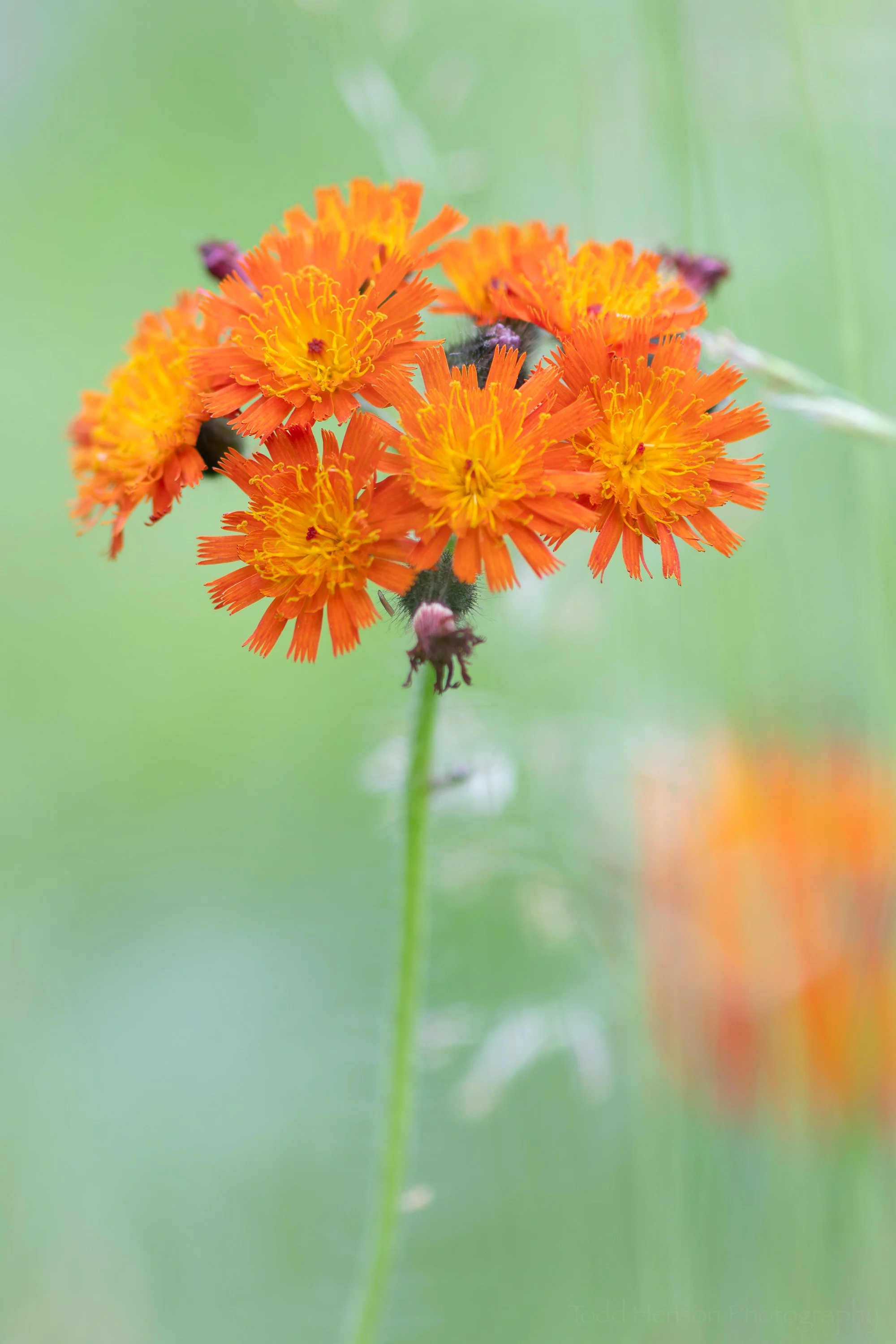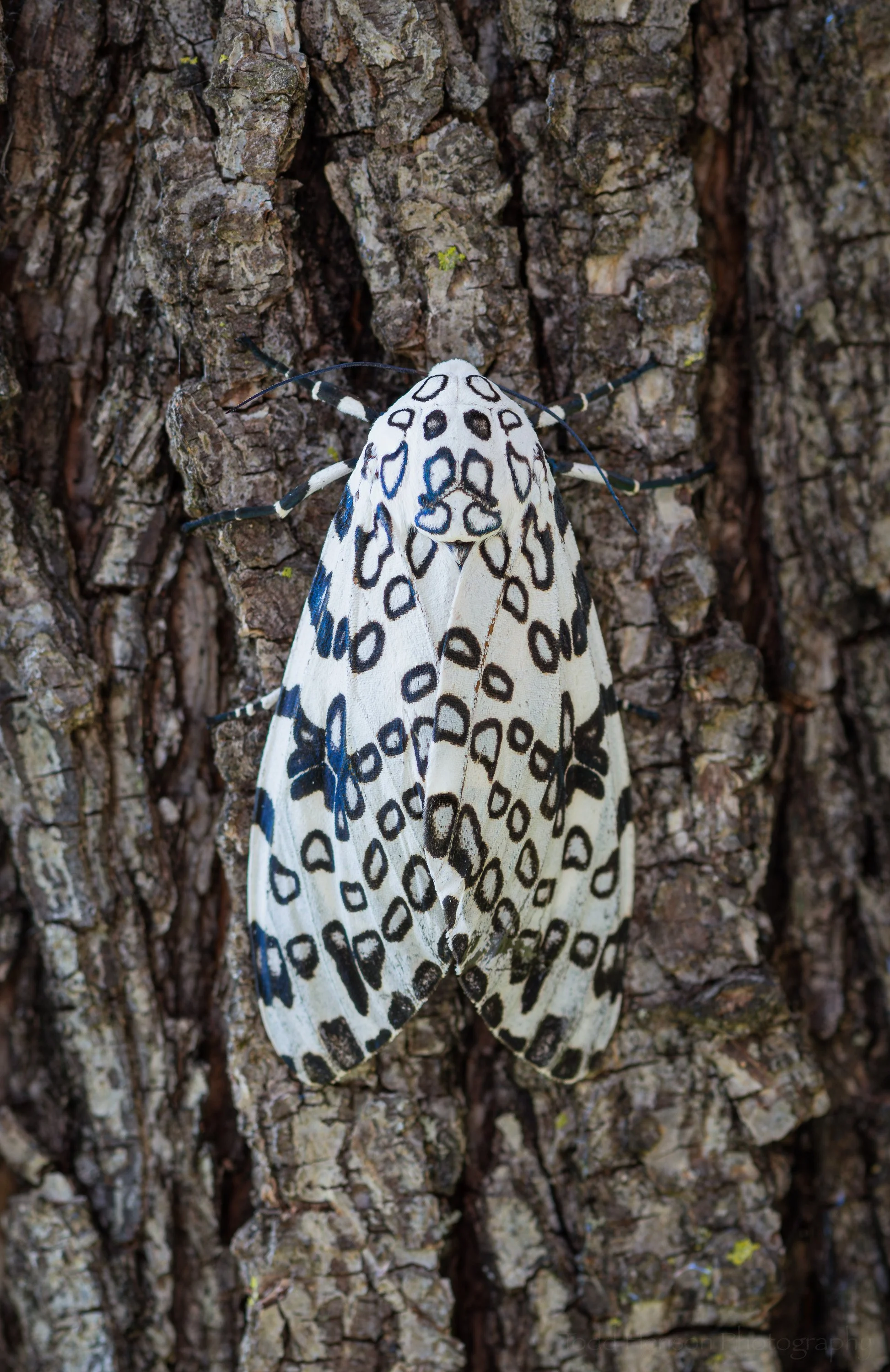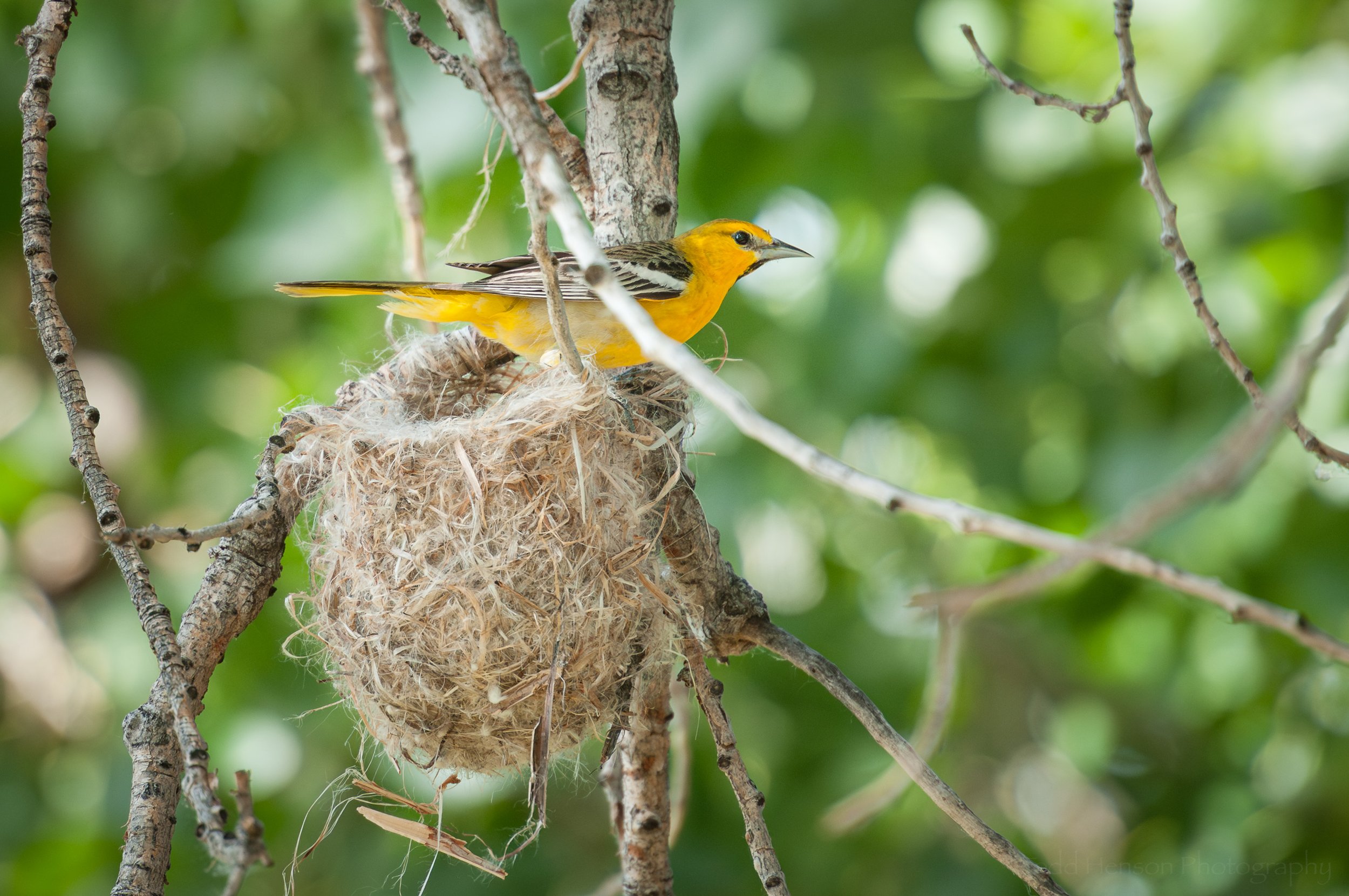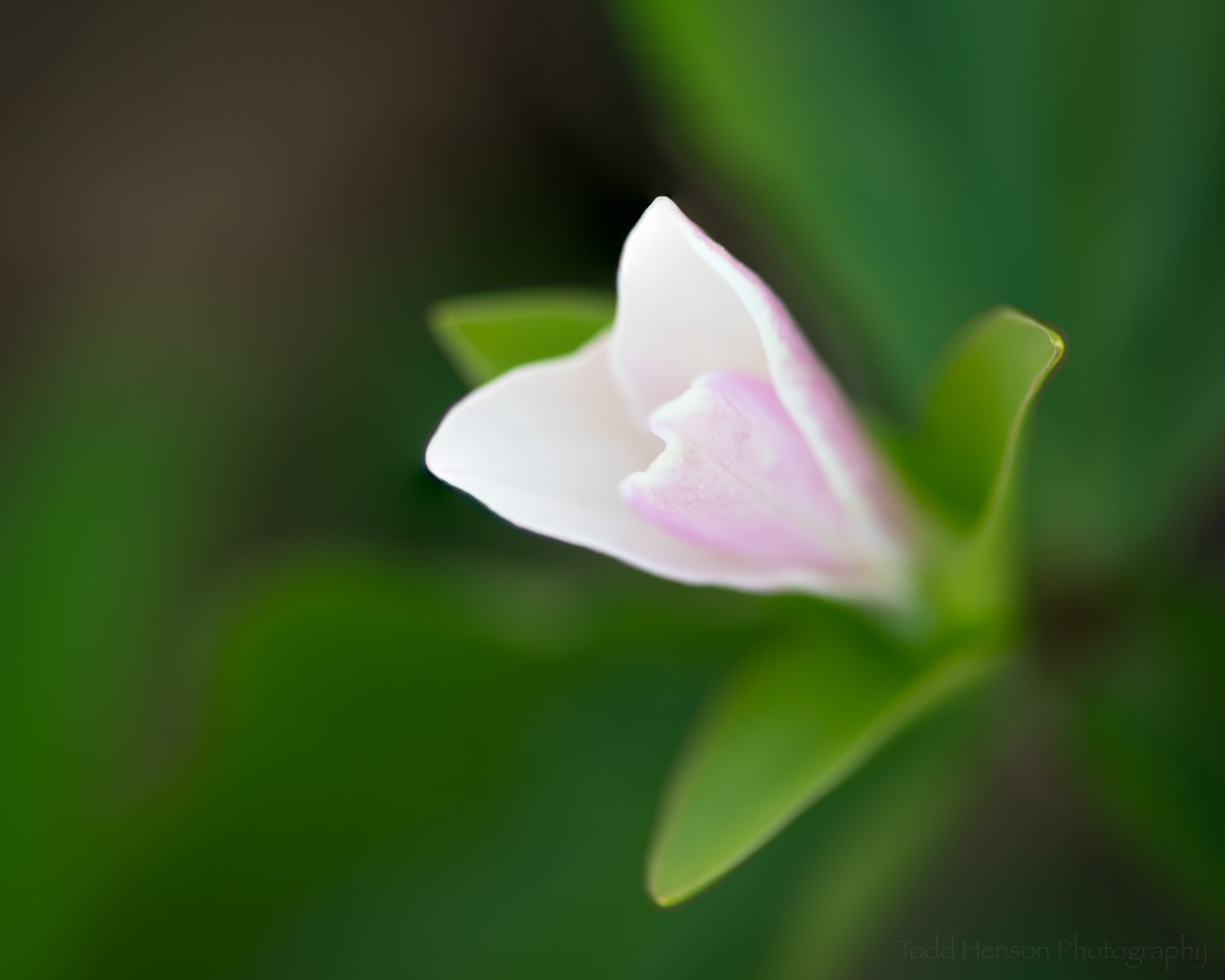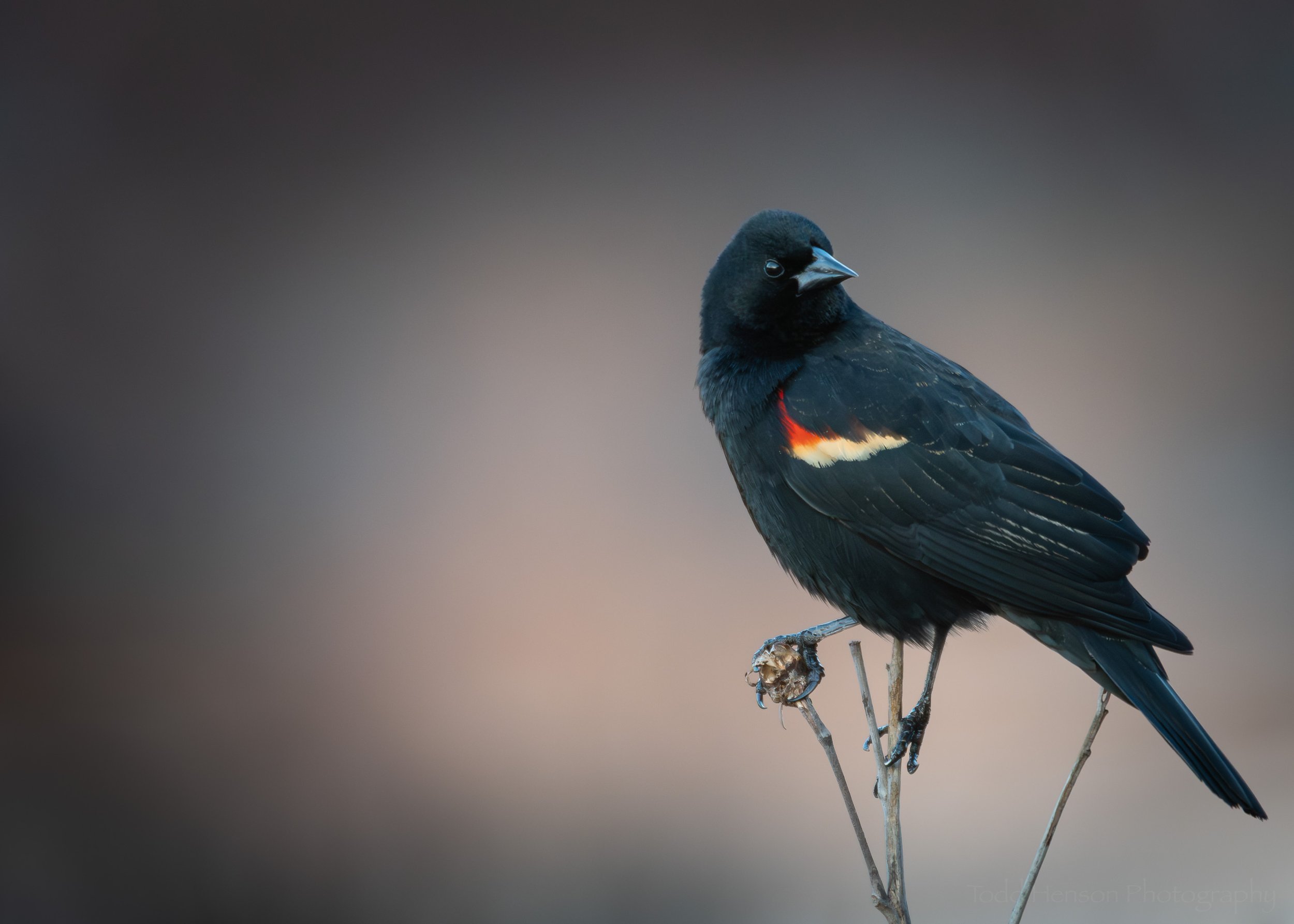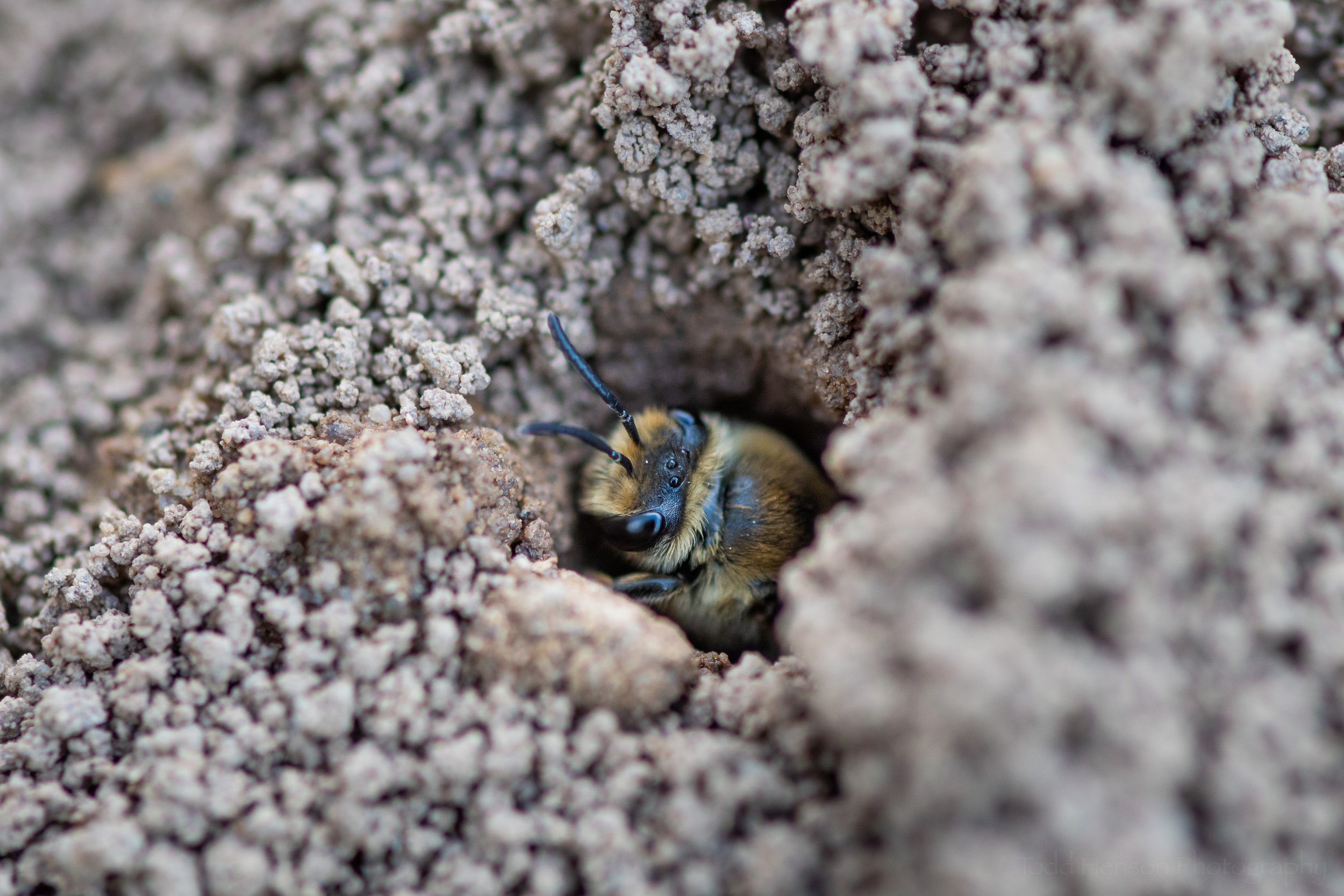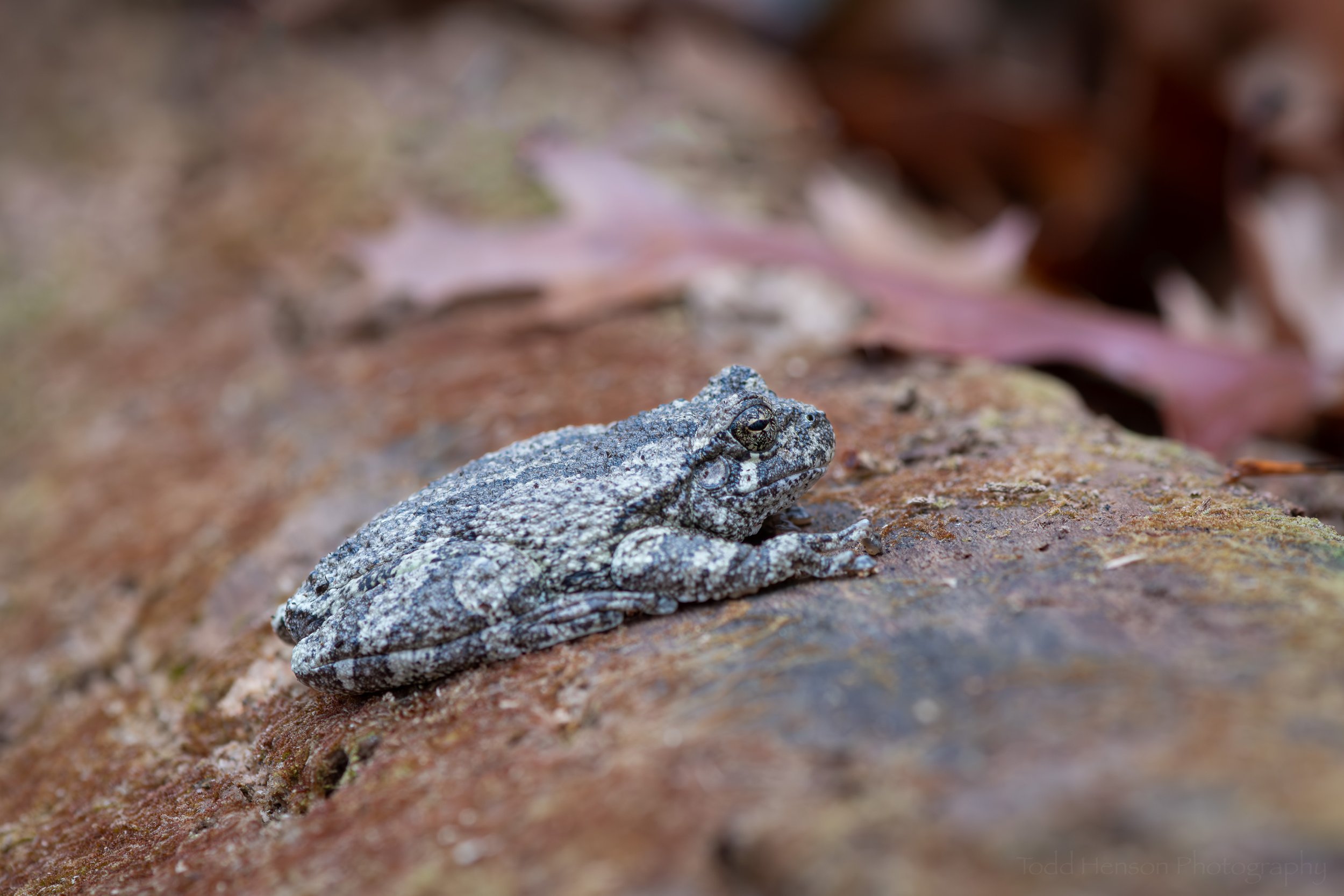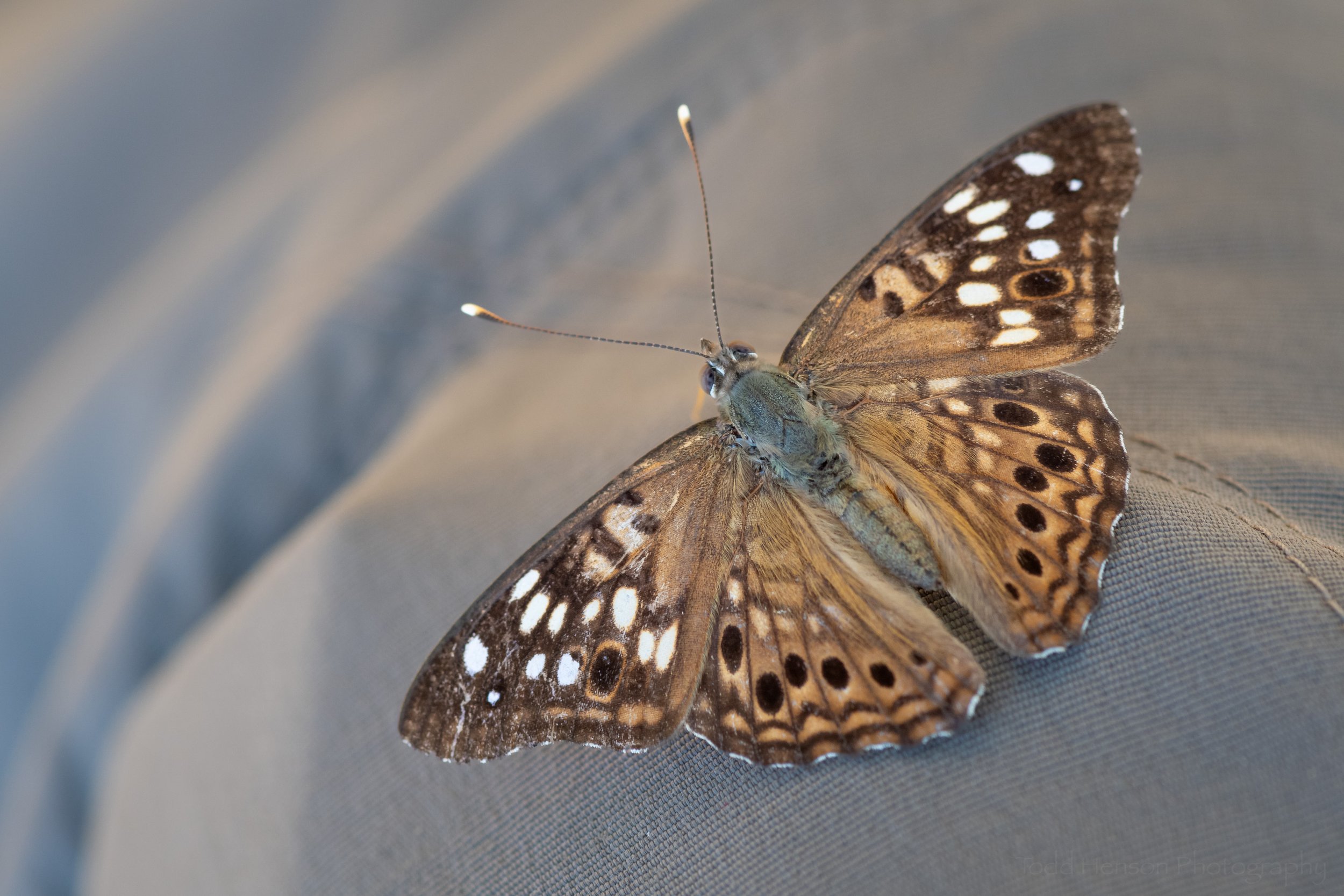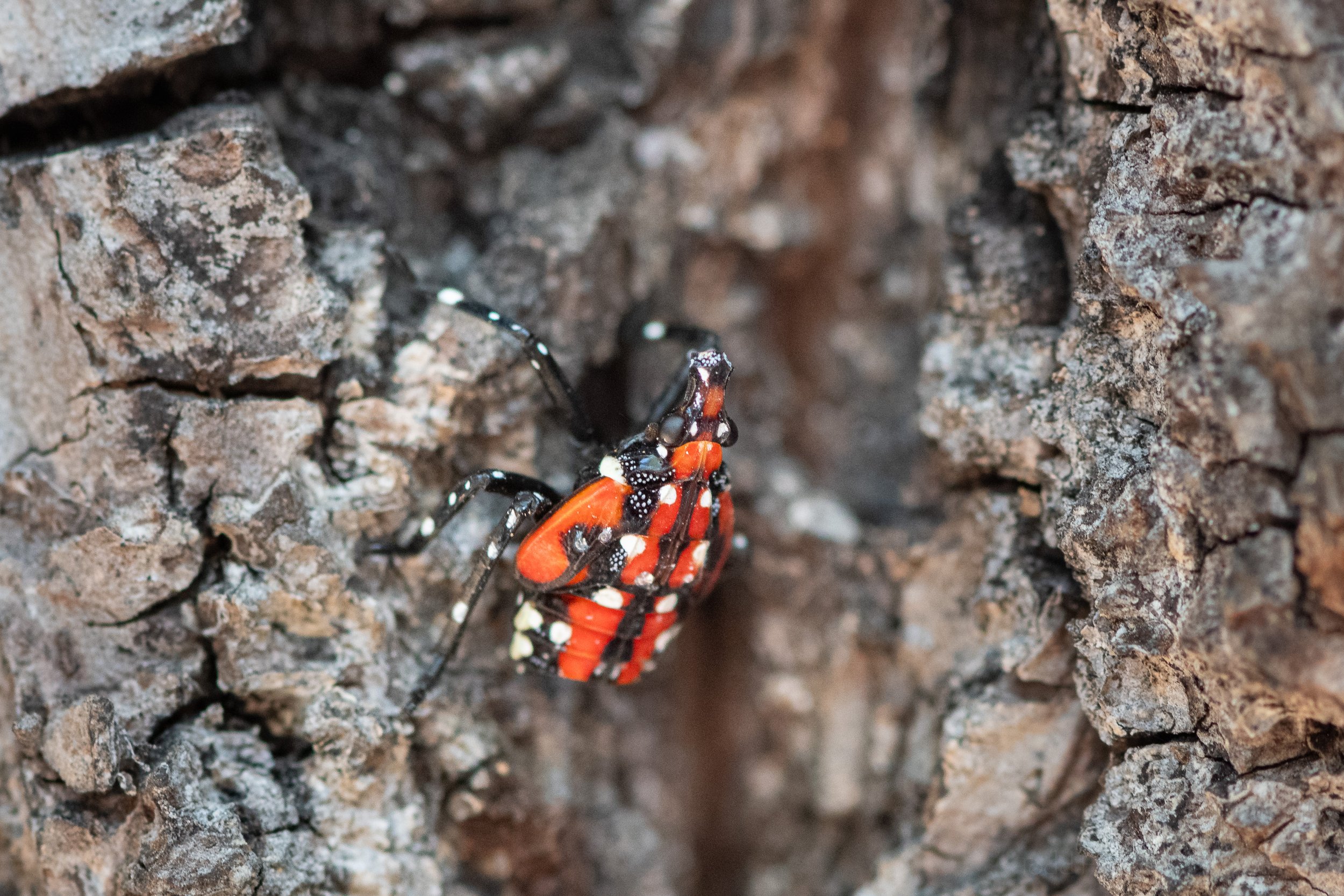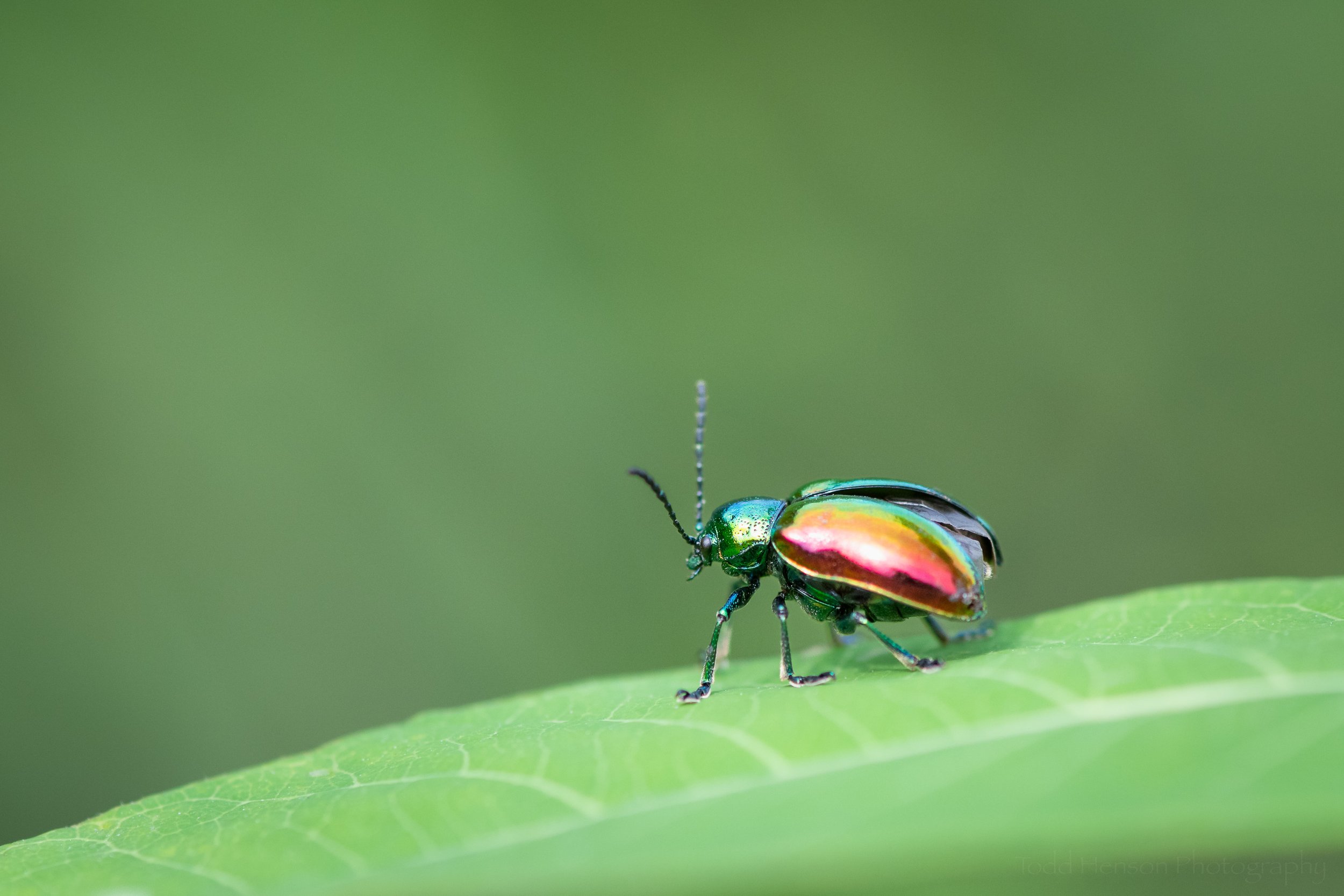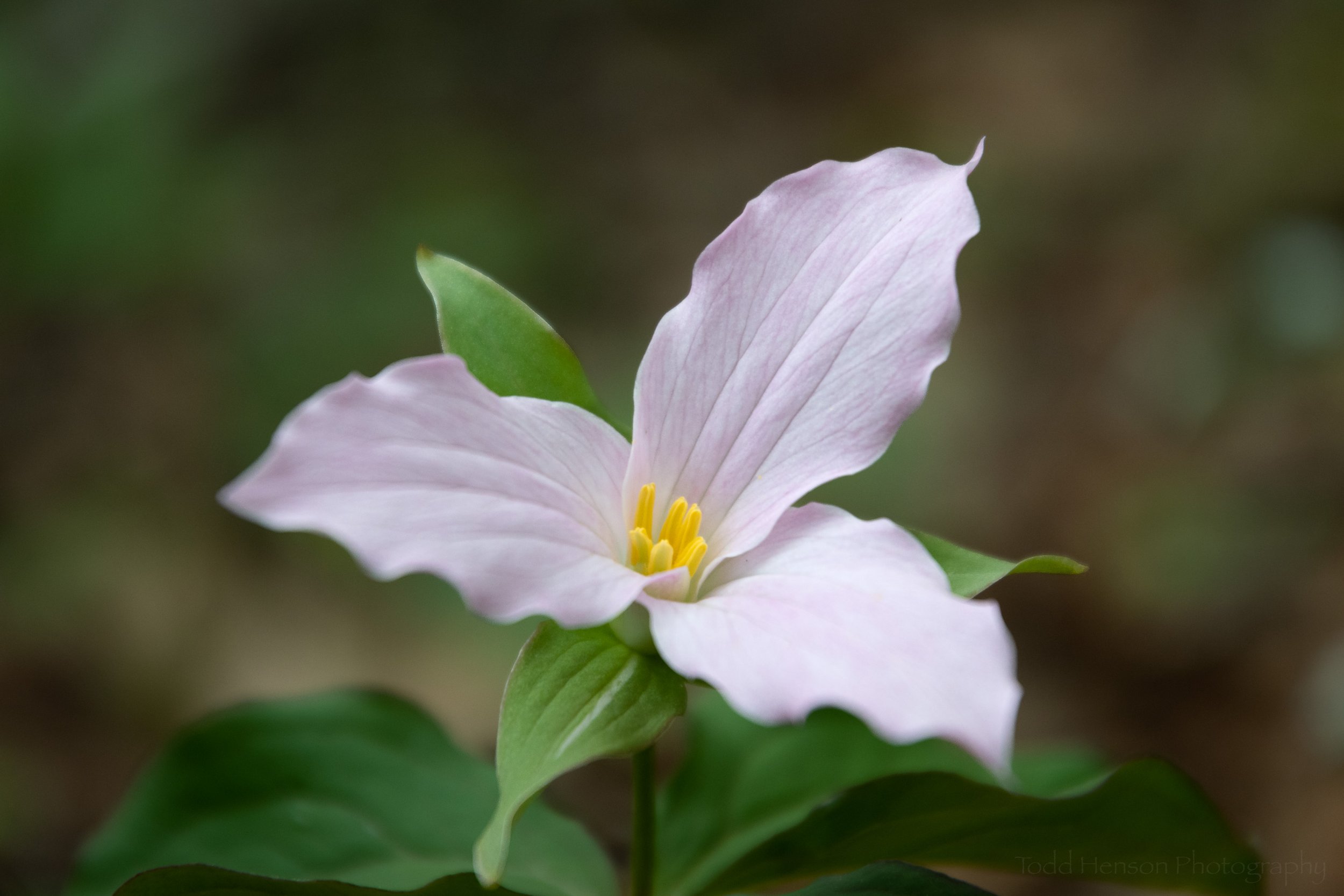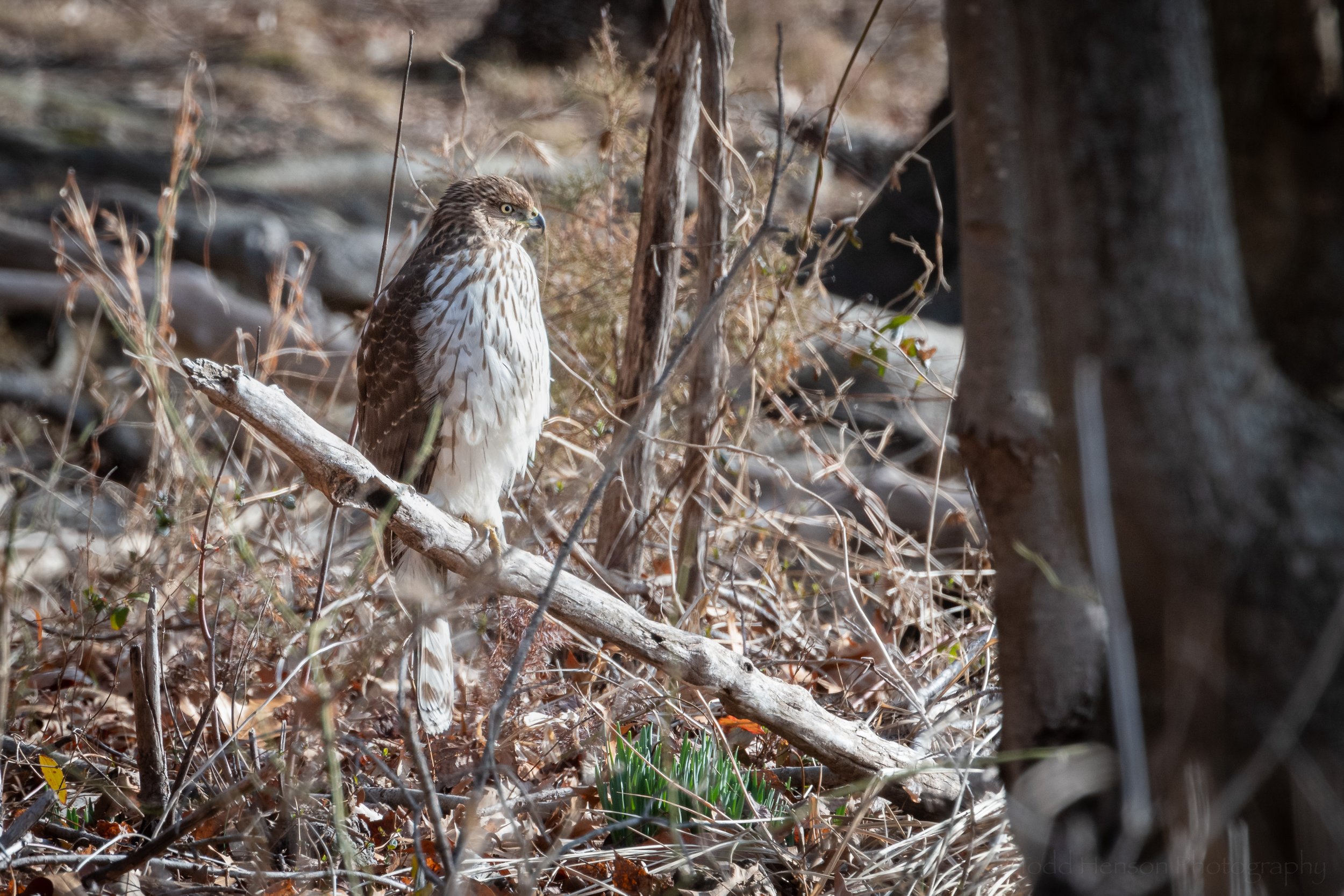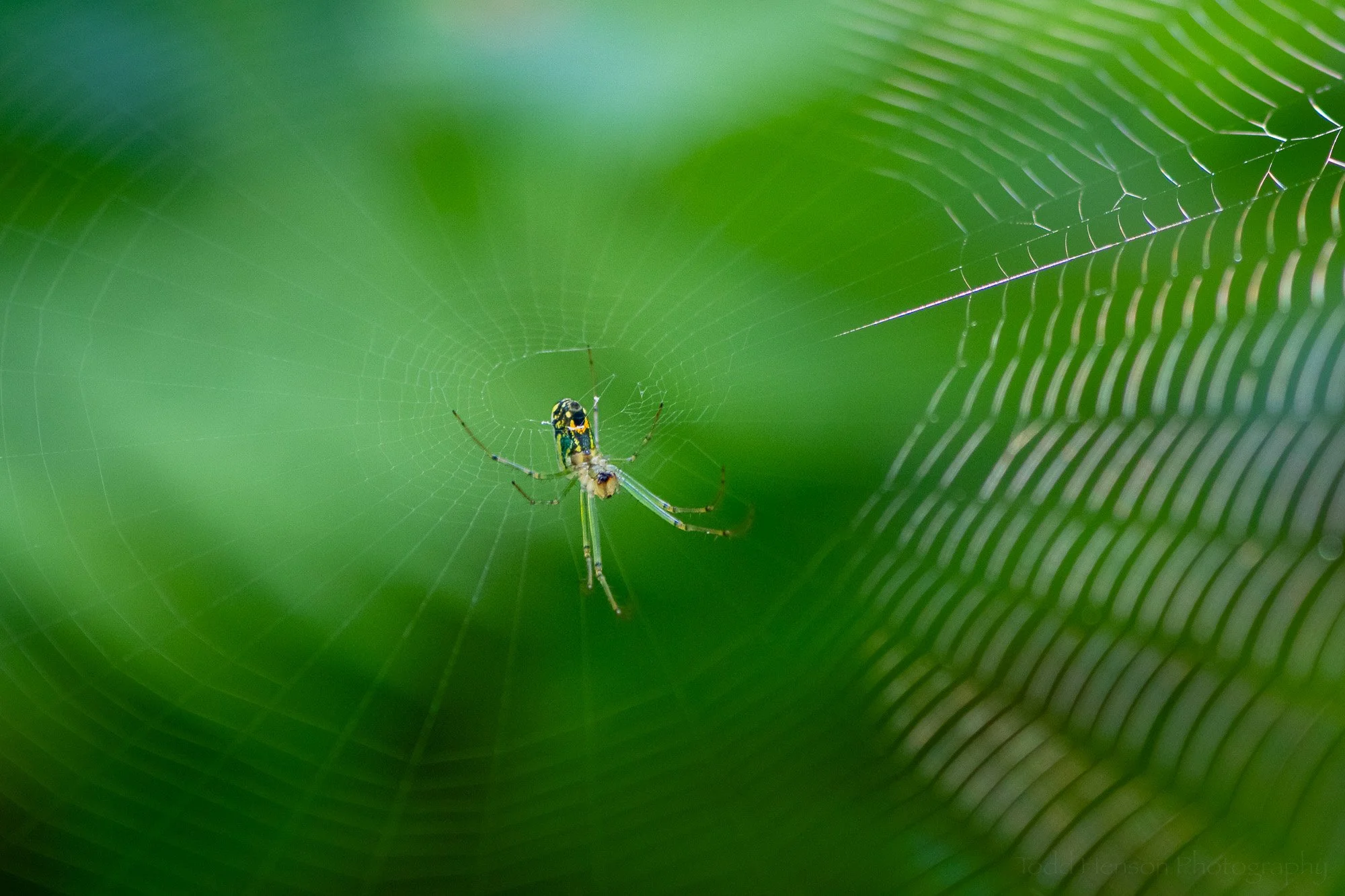A male ebony jewelwing damselfly
Sometimes you really have to work to get even a mediocre photograph of a subject. That happened with this one, an ebony jewelwing damselfly. We were hiking through the woods when we turned right onto one of the dirt roads that led back to the car. Not far along that section of wooded road I noticed this very dark damselfly, one I don’t recall seeing before. Every other damselfly I’d seen had mostly clear wings, but this one’s were black. And the body was a beautiful metallic blue. At the time I had no idea what specific species it was so I went about capturing some photographs hoping it was unique enough to allow easy identification later (it was).
This particular damselfly appeared a bit jumpy and I didn’t have a very long lens with me, just my 105mm macro lens. So I attempted to slowly approach it a number of times and almost each time it would fly off just as I got close enough to get a decent photo. But eventually we were able to work together. I moved slowly enough and perhaps it became used to my presence. So I have this single image to share of the ebony jewelwing perched atop a blade of grass.
This particular individual happens to be a male, which have the metallic blue body and all black wings. The female is more of a brown color and has white spots at the tips of the wings. Like all damselflies this one was a fast mover, quickly flying from one perch to another, very difficult to follow in flight with the camera. I have done that before with some larger dragonflies but it’s very much a challenge, and one I didn’t succeed at this time around.
The trail was somewhat dark and I had to handhold to follow the damselfly so I set my ISO high, to 1250. I had a reasonably open aperture, f/5, giving me a shutter speed of 1/2500 second. When it landed it tended to stay reasonably still, so I might have gotten away with a slower shutter speed and a lower ISO (for less noise) or smaller aperture (for more depth of field), but I didn’t want to risk it and didn’t have a lot of time to think through changing settings. There is some noise, but I think it works perfectly fine as a natural history sort of image to show you an example of this magnificent species.
Do you enjoy these posts?
Sign up to receive periodic emails with updates and thoughts. Don’t worry, I won’t spam you. And please consider purchasing artwork or products from my online store, and using my affiliate links in the sidebar to the right when shopping online.
I appreciate your support!
